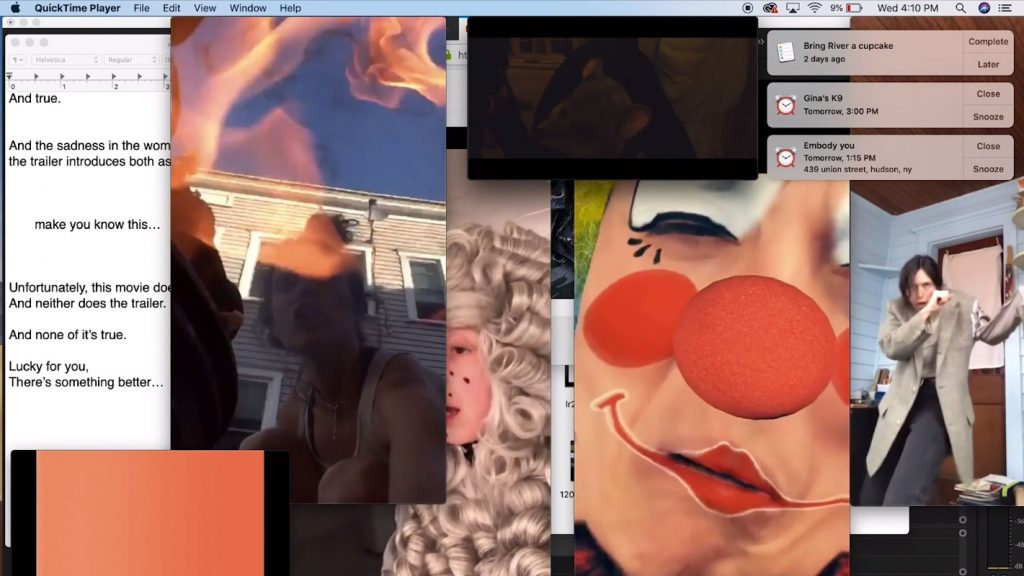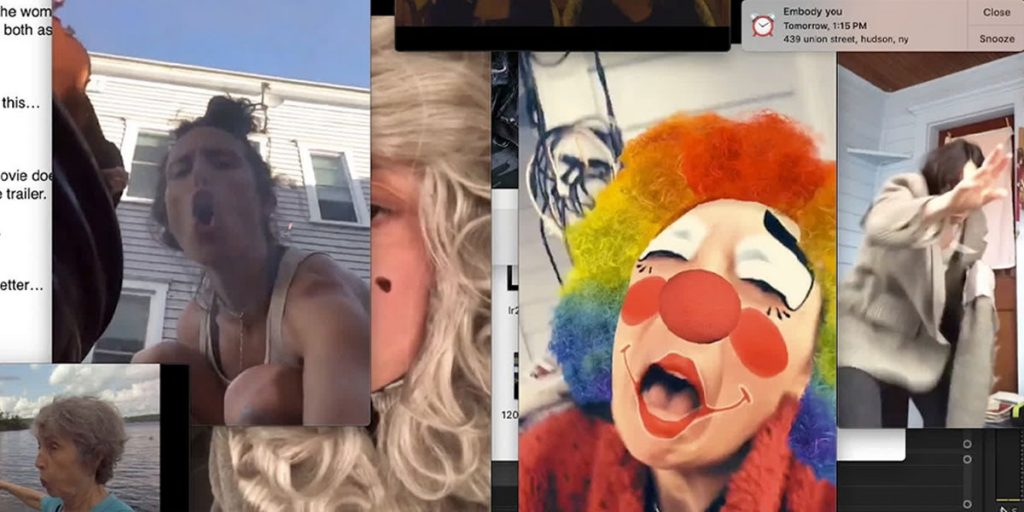Zia Anger’s My First Film is by parts retrospective, documentary, performance piece and video essay all in one wonderful package.
Nobody likes failing. Failing makes you a failure, and, once you’re tarred with that brush, it’s very hard to change people’s impression. No wonder we, like the bad dog who broke something precious, try our very best to hide the evidence. The longer we’re able to convince complete strangers that we’ve got a hold on life, the easier it will be for us. I recently got done watching all Stanley Kubrick’s films with a friend, his first two (Fear and Desire and Killer’s Kiss) aren’t generally well regarded. Indeed, the man deliberately tried to bury them after his later success, going so far as to openly campaign against their preservation and sceening. If a man generally regarded as a master of the craft is capable of feeling such shame, what hope is there for the rest of us?
Zia Anger’s first feature film Always All Ways, Anne Marie is officially listed on IMDb as ‘Abandoned‘. It’s not, I’ve seen it. It exists, but only as a file on her computer. Because nobody wanted it, nobody had any use for it, and so it got buried — hidden on a hard drive with a decade of digital detritus. About as close to non-existance as a film can be. In her new video/performance art project, My First Film, she exhumes it along with a lifetime of work that was left unfinished or lost. In a culture where the stigma of failure hangs so heavy (especially among women filmmakers who are so rarely afforded the chances of their male counterparts) she explores its nature with an honesty rarely seen.
Originally devised as a live performance piece for festivals and cultural centres, the work consists of Anger pulling up clips and documents from her filmmaking career, interacting with her audience over iMessage, and providing a running commentary to link together the disparate works through the context of the experience creating her first, and only, feature film. Since the start of the coronavirus pandemic, she’s been organising livestreams semi-regularly, in order to open the experience up to a wider variety of people.
It’s still hard to access. Anger will tweet an annoucement and you need to get in fast in order to reserve your place. The streams happen on her time, at her will, being in the UK I had to stay up until 3am one morning in order to watch. Even with the whole internet at her disposal, she chooses to ground the experience within tactile sensations. Time, and place. A reminder of who and where we are, that the experience is something shared between us.

The television, as wonderful as it is, can’t help but sometimes flatten reality. I’m often tickled by the irony, we’ll pay a premium to watch old films remastered to as good as new, looking like they could have been shot yesterday. Yet, when we go to a cinema to watch some classic film print, those same flaws we do our best to eliminate at home now read to us as authenticity. I, like all of us I assume, am guilty of watching and writing about films in a way that centres myself, without considering the work as an artefact with its own place in history.
Through presenting My First Film as a live experience, Anger confronts the audience with the historicity of her work. She creates an environment of shared comprehension. Her thoughts are not strictly rehearsed — she diverts, goes off on tangents, we are not witnessing the polished words of someone sure of themselves, but rather participating in an act of shared discovery. ‘It’s not a good film’, she admits early on, but since when did being bad mean that something wasn’t worthwhile?
We’ve seen elements of this before, the Unfriended films and Searching have introduced the genre of computer desktop dramas, so we’ve some experience with the langauge being used. What feels new here is the intimacy. Early on, she invites you to text her to interact, the notifications will all pop up on the screen whenever you do. But that comes with the acceptance that everyone else watching will get your number too: an invitation to interact with these strangers you will probably never meet.
It is not easy to share failure. Nobody wants to make themselves so vulnerable. And yet, we can’t keep going the way we are. It’s not healthy to have to confront everyday a glistening wall of perfect people. As much as anything, My First Film feels like an experiment in radical honesty, a confrontation of the pains and pleasures that make up the work of creating art. It is rare to have someone talk so frankly, and even rarer for them to be willing to share it in such a personal way.
Zia Anger publicises screenings of My First Film via her twitter account. Some are paid screenings, and some run on donation. Dates and times are usually announced a few days in advance.

